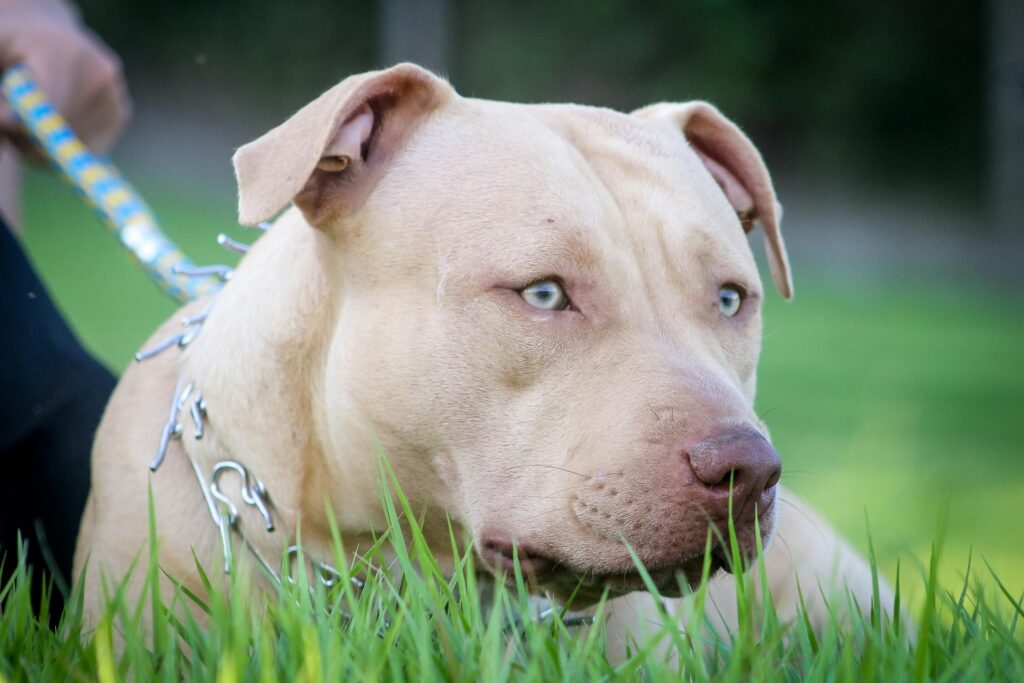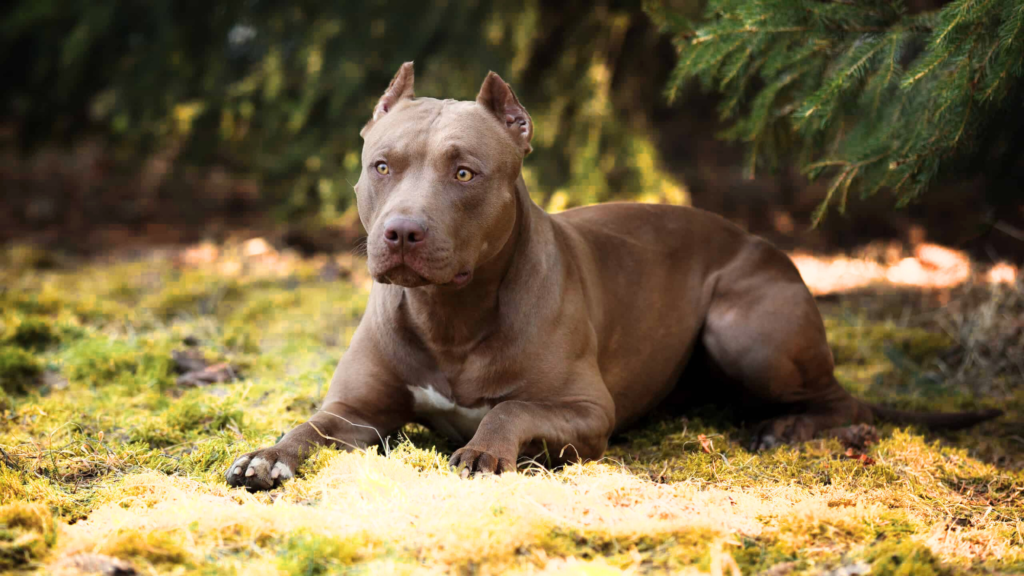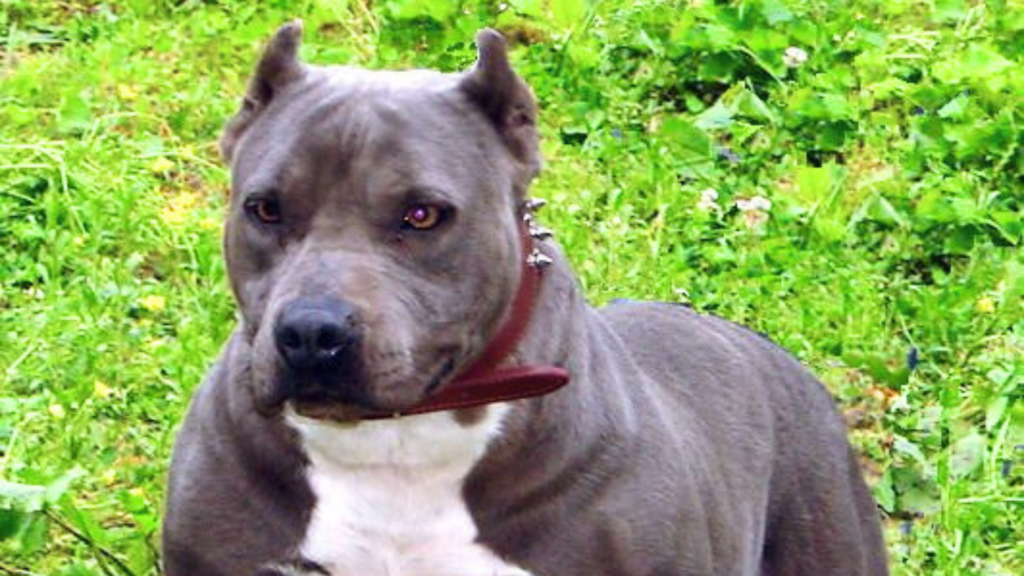| Summary: A female Pitbull’s life expectancy ranges from 12 to 16 years, depending on genetics, diet, exercise, and healthcare. Spaying can reduce certain health risks, potentially extending lifespan. Regular vet checkups, mental stimulation, and a balanced diet play vital roles in ensuring a long and healthy life for female Pitbulls. |
Pitbulls are one of the most well-known dog breeds, renowned for their loyalty, strength, and affectionate nature. When considering adopting or purchasing a Pitbull, it’s essential to understand pitbull life expectancy female, and factors that influence it. Just like humans, dogs experience different life stages, and understanding how long your female Pitbull might live can help you prepare for a healthy and fulfilling life together.
In this article, we will dive deep into the life expectancy of a female Pitbull, examining key factors that influence their lifespan, average life expectancy, and how to ensure your Pitbull lives a long, happy life. Learn about the size collar for an American Eskimo to ensure a perfect fit and comfort for your dog.
Female Pitbulls generally live between 12 to 16 years with proper care and a healthy environment. GPS dog collars help monitor activity and ensure safety on walks.
Blog Highlights
ToggleIntroduction to Pitbulls
The term “Pitbull” is often used as a catch-all for several dog breeds, but it typically refers to the American Pit Bull Terrier, American Staffordshire Terrier, Staffordshire Bull Terrier, and sometimes the American Bulldog. These breeds share similar characteristics, such as muscular builds, high energy, and affectionate temperaments.

Female Pitbulls are slightly smaller than males, and their life expectancy can vary based on factors such as genetics, diet, exercise, and healthcare. In general, Pitbulls are known for their strong health and resilience, but like all breeds, they are susceptible to certain health conditions that can impact their lifespan.
Discover why Afghan Hound collars are wide by exploring the unique characteristics of this breed and how wide collars enhance their comfort and style. Their lifespan depends on diet, genetics, exercise, and preventive healthcare. Pet tech products like smart feeders and activity monitors can support their wellness.
Quick Fix Table: Female Pitbull Life Expectancy Factors
| Factor | Impact on Lifespan |
| Average Lifespan | 12–16 years |
| Spaying | May reduce risk of cancers |
| Diet & Nutrition | Supports immune and organ health |
| Exercise | Prevents obesity, joint issues |
| Vet Checkups | Early disease detection |
| Genetics | Inherited health risks vary |
Average Pitbull Life Expectancy Female
On average, a female Pitbull can live anywhere from 12 to 16 years, with the typical lifespan being around 13 years. However, this can vary depending on various factors, including genetics, living conditions, diet, and access to veterinary care. Pitbulls are generally considered a robust breed, but they do have some health challenges that could influence their longevity.

Here is a more specific breakdown of the life expectancy by the type of care and lifestyle:
- Healthy Female Pitbulls with Optimal Care: 14-16 years
- Female Pitbulls with Average Care and Lifestyle: 12-14 years
- Female Pitbulls with Poor Care or Health Issues: 8-12 years
Factors Affecting the Life Expectancy of Female Pitbulls
Several factors play a role in determining how long a female Pitbull will live. These factors are important to consider when aiming to give your Pitbull a long and healthy life. Let’s explore the main factors:

1. Genetics
Genetics is a significant factor in determining the life expectancy of any dog. A female Pitbull with good genetic health from healthy bloodlines is more likely to live longer. Just as some human families are predisposed to certain health conditions, some Pitbulls inherit genetic factors that could either lengthen or shorten their lifespan.
Pitbulls from well-bred lines, with health-tested parents, generally have fewer hereditary health issues. This can greatly improve their chances of living a long life. However, it is important to note that even within healthy bloodlines, certain health problems can still arise.
2. Diet and Nutrition
A balanced, high-quality diet is crucial for the overall health and life expectancy of a female Pitbull. Obesity is one of the most common issues faced by this breed, which can lead to joint problems, heart disease, and a reduced life expectancy.
A proper diet includes lean proteins, healthy fats, vitamins, and minerals that help maintain a healthy weight, support muscle growth, and prevent disease. Pitbulls require a diet rich in animal-based protein, such as chicken, beef, or fish, and should avoid high-carb, low-nutrient foods.
Here are some general guidelines for feeding your female Pitbull:
- Calories: Around 1,000 to 1,500 kcal per day, depending on age, weight, and activity level.
- Protein: 18-30% of their diet should come from protein to support muscle growth and development.
- Fat: Healthy fats like fish oil should be included to promote healthy skin and coat, as well as brain function.
Feeding your Pitbull a high-quality, balanced diet will help them maintain a healthy weight and prevent chronic health issues, contributing to a longer life expectancy. Early spaying may also contribute to better health and longevity in female Pitbulls. Dog training equipment aids in mental and physical engagement.
3. Exercise and Physical Activity
Pitbulls are highly energetic dogs that require regular physical exercise to stay healthy. Daily exercise is important to keep them fit, maintain a healthy weight, and prevent obesity. Lack of exercise can lead to behavioral problems and health issues, such as heart disease and joint problems.
The amount of exercise needed will vary depending on your female Pitbull’s age, but typically, adult Pitbulls require at least 1 hour of exercise per day, including activities like running, playing fetch, or walking. For puppies and younger dogs, more exercise may be needed, while older dogs may require less strenuous activities.
Physical activity helps to improve cardiovascular health, strengthens muscles, and reduces the risk of obesity, all of which contribute to a longer life.
4. Veterinary Care
Routine veterinary visits are essential for preventing health problems in your female Pitbull. Regular check-ups, vaccinations, flea and tick preventatives, and dental care all contribute to overall well-being. Regular vet visits help detect early signs of disease, allowing for early treatment that can significantly extend life expectancy.
Here are some common health issues in Pitbulls that may affect life expectancy:
- Hip Dysplasia: A genetic condition that can lead to joint problems and arthritis.
- Allergies: Common in Pitbulls, allergies can lead to skin infections and other health issues.
- Heart Disease: Heart conditions like mitral valve disease can affect Pitbulls as they age.
- Cancer: Pitbulls, like many breeds, can be prone to certain types of cancer, such as lymphoma and mast cell tumors.
By scheduling regular check-ups, you can ensure that any potential health issues are caught early, giving your dog the best chance at a long, healthy life.
5. Spaying and Reproductive Health
Spaying your female Pitbull can have a positive effect on her overall health and lifespan. Research has shown that spayed dogs tend to live longer than their unspayed counterparts due to the reduction in the risk of certain cancers, such as uterine and ovarian cancer, and the risk of pyometra, a life-threatening uterine infection.
Additionally, spaying reduces the likelihood of unwanted pregnancies, which can cause physical strain on a dog’s body. Spayed female Pitbulls typically have a reduced risk of certain hormone-related diseases, which could help them live a longer life.
However, it’s important to consult with a veterinarian about the optimal age for spaying, as some studies suggest that early spaying might influence the development of certain health conditions, such as orthopedic problems.
Find out what style dog collar is best for hounds to ensure comfort and safety for your furry friend.
Common Health Issues and Lifespan Impact
As mentioned earlier, female Pitbulls are prone to certain health problems that can affect their life expectancy. Here is a list of common health issues in Pitbulls and how they might impact their lifespan:

1. Hip Dysplasia
Hip dysplasia is a genetic condition that results in abnormal formation of the hip joint, leading to arthritis and pain. While not always life-threatening, it can greatly affect a Pitbull’s mobility and quality of life. Dogs with severe hip dysplasia may require surgery, which could impact their lifespan if left untreated.
2. Skin Conditions
Pitbulls are prone to skin conditions, including allergies, hot spots, and pyoderma (bacterial infections). Skin allergies can lead to chronic itching and inflammation, making them more susceptible to infections. Regular grooming and skin care are essential to managing these issues and avoiding complications that could shorten their life.
3. Heart Disease
Pitbulls can develop heart disease, particularly as they age. Mitral valve disease and other heart conditions can lead to heart failure if not treated promptly. Regular vet visits and early detection can help extend a Pitbull’s life by managing heart disease with medication or surgery.
4. Cancer
Cancer is a common issue in older Pitbulls and can significantly impact their life expectancy. Lymphoma and mast cell tumors are particularly common in the breed. Early detection of cancer is crucial, as it increases the chances of successful treatment and survival.
How to Maximize the Life Expectancy of Your Female Pitbull
Ensuring that your female Pitbull has a long and healthy life requires a combination of proper care, attention, and preventive measures. Here are some tips to help maximize her life expectancy:

- Provide a Balanced Diet: Feed her a high-quality, nutrient-rich diet with the right balance of protein and fat.
- Regular Exercise: Keep her active with daily walks, playtime, and physical activities that are appropriate for her age.
- Routine Vet Visits: Schedule regular check-ups with a vet for vaccinations, dental care, and early disease detection.
- Spaying: Consider spaying your Pitbull at the right age to prevent reproductive health issues and certain cancers.
- Prevent Obesity: Monitor her weight closely, as obesity can lead to a variety of health issues that shorten her life.
The ideal size collar for English Springer Spaniel typically ranges from 14 to 20 inches, depending on the dog’s age and neck size, ensuring a comfortable and secure fit.
Conclusion
The pitbull life expectancy female is 12 to 16 years, with proper care and attention to her health, diet, and exercise. While genetics plays a significant role, providing a balanced diet, regular exercise, and routine veterinary care can help your Pitbull live a long and healthy life.
Regular vet visits and balanced nutrition can maximize their life expectancy. Electronic dog collars help maintain good behavior and safety in training.
By understanding the factors that affect her lifespan, you can take proactive steps to ensure your beloved Pitbull enjoys many years of happiness and companionship. To find the perfect fit, learn more about what size collar for a Bichon, ensuring your dog’s comfort and safety.





